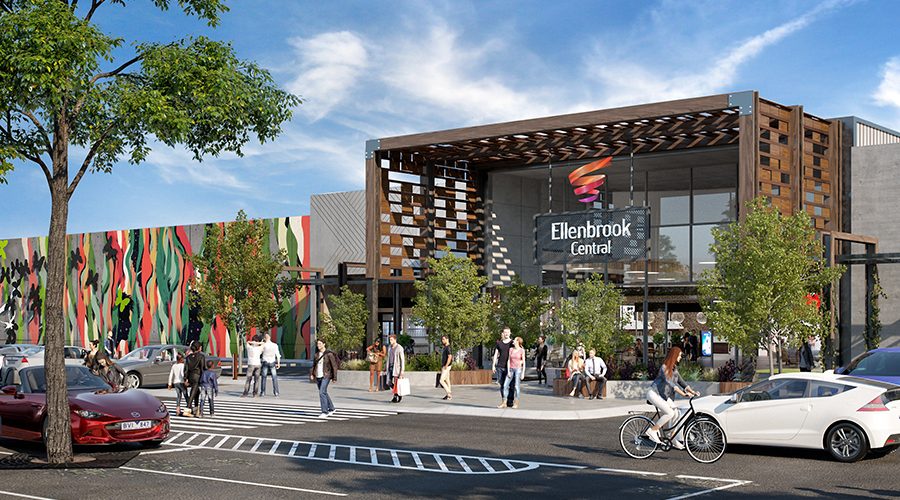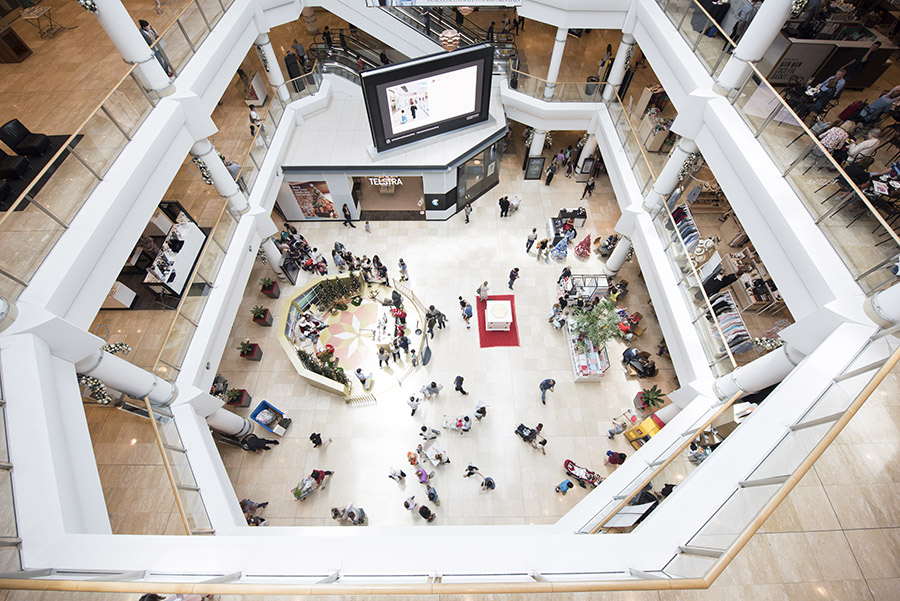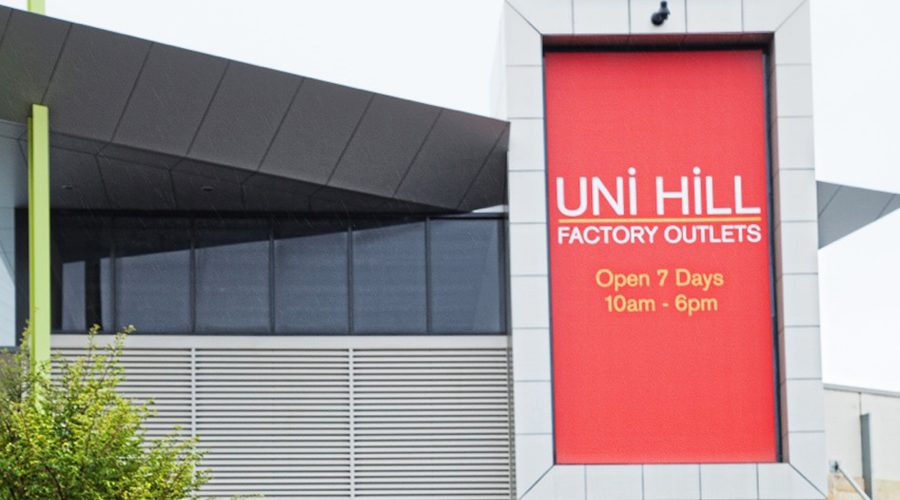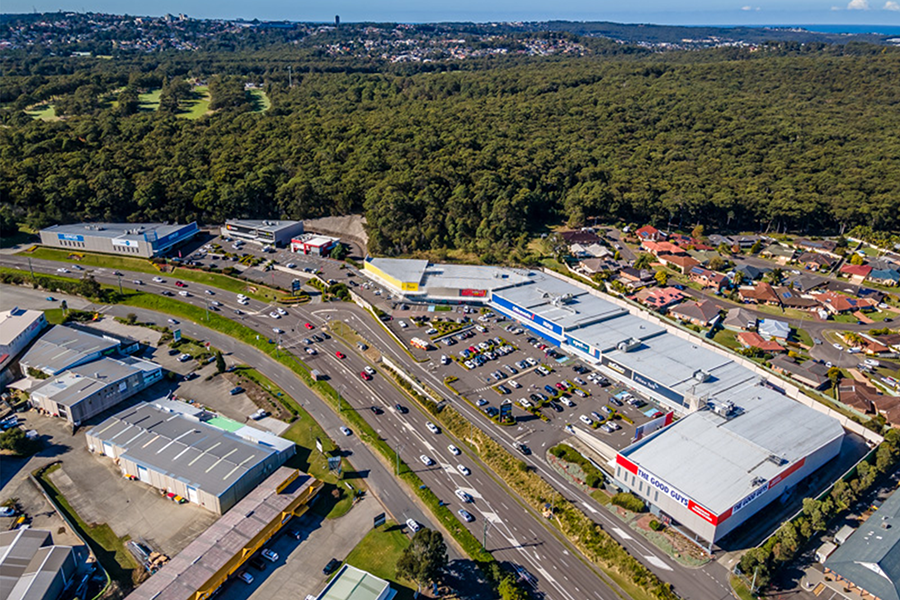Vicinity Centres provided their March 2020 quarterly update in response to COVID-19, announcing a number of sensible measures to ensure the organisation gets through this challenging retail period. As one of the largest shopping centre groups, Vicinity Centres has 64 retail assets under management with 7,400 retailer relationships. While the business remains positive for a retail recovery in the future, in the short term major development projects are on hold and the company is focused on reducing costs in an effort to stabilise the business.
Vicinity’s sales figures in the March 2020 quarter were impacted by variances in customer traffic, mandated and voluntary retail store closures, government ‘stay at home’ directives, and consumer spending redirected toward on non-discretionary items. Overall sales were impacted in March across the portfolio of -16.5% with speciality stores recorded a -35.1% variance compared to March 2019. Fashion sales were the most affected, recording a massive -43.7% decline. Aligned the industry supermarkets sales soared in March due to panic buying resulting in a +22.2% increase.
Vicinity’s only live development project is the $63 million expansion of Ellenbrook Central, WA, which will see the addition of Kmart, three mini majors and 15 specialty retailers to the centre. Construction remains on schedule, with Kmart to open on completion in the second half of this calendar year.
Grant Kelley, CEO and Managing Director, said, “We have deferred all non-critical capital expenditure, including the proposed redevelopment of Chatswood Chase in Sydney, NSW.”
“The retail environment remains unstable and we expect challenging conditions to persist for at least the next 12 months. However, we have been buoyed by Australia’s resilience and the speed with which the pandemic has been contained. Our teams are highly focused on ongoing recovery, and providing customers and retailers with the opportunity to return and reconnect to our centres in a safe manner.” said Kelley.

Ellenbrook Central is in one of the fastest growing areas in Perth’s north east corridor
Kelley reconfirmed, “Operating our business in a manner which protects the safety, health and wellbeing of our team members, customers, retailers and the broader community is our highest priority.”
“We continue to implement measures to support the recommendations of federal and state health authorities, which are necessary to safeguard our community during this period of COVID-19 containment. This includes introducing a range of procedures to operate our centres safely, for our customers who are relying on us for products and services, for our retailers who continue trading or are reopening, and for our team members”, he said.
“Over the past week, we have seen early signs of a recovery in centre visitation, as restrictions have begun to ease. Retailers who closed their stores voluntarily in prior months are beginning to reopen for trade, with 530 stores reopening in the past seven days.”
“We are working with our retailers to support them during this challenging period, and have been focused especially on our smaller retailers. Vicinity welcomed and supports the Federal Government’s SME Commercial Code of Conduct and Leasing Principles During COVID-19 (the Code) and will continue to work with state governments as the Code takes legislative effect. Our team adopted the principles of the Code immediately, in order to complement the measures already underway to support our retailers based on their individual circumstances.
“We continue to negotiate in good faith with all retailers whose businesses have experienced a downturn as a result of COVID-19, and will accelerate temporary arrangements to assist them through this situation. Inevitably, our income at this time is being impacted negatively, however we agree with the Federal Government’s sentiment that landlords and tenants have a shared responsibility to tackle the challenges brought about by these unprecedented times.
“We are working hard to balance the needs and responsibilities of all of our stakeholders, including our team members, our securityholders, our customers and the thousands of retailers in our centres, particularly our SME retailers”, he continued.

The Chatswood Chase development will be put on hold
“Our goal is to ensure the viability of our industry through to the other side of the pandemic. This relies upon both the continued sustainability of retailers, combined with the critical infrastructure of shopping centres, which collectively employ a significant number of Australians, and provide a broad range of essential and discretionary goods and services for our communities.”
Kelley added: “Vicinity entered this crisis in good shape. However, given the impact of government mandated restrictions, and a heightened level of voluntary store closures, cost reductions across our business have become necessary.
Vicinity continues to operate within its financial covenants and has $1.3 billion of available liquidity. Moody’s and Standard & Poor’s reaffirmed Vicinity’s A2 and A credit ratings in March 2020 and April 2020 respectively, but each revised Vicinity’s credit rating outlook from stable to negative, due to uncertainties surrounding the potential impacts of COVID-19.
The acquisition by Vicinity of a 50% interest in Uni Hill Factory Outlets in Victoria settled on 6 April 2020. The centre will be the seventh outlet in the portfolio and will be relaunched under Vicinity’s successful DFO brand when the retail environment stabilises.

In March, Vicinity moved to reduce its Board of Directors’ fees and Executive Committee salaries by 20% for three months from 1 April to 30 June 2020 inclusive. The FY20 Short Term Incentive program has also been cancelled. With reduced activity in several parts of the business, Vicinity have also taken the difficult decision to decrease working hours for 70% of its team members, with some being fully stood down, to 30 June 2020.”
“Over the past few years we have built a great team at Vicinity and we look forward to many team members resuming work as soon as possible”, he said.
Kelley concluded, “We will continue to monitor trading conditions, and will provide further updates as appropriate.”





















